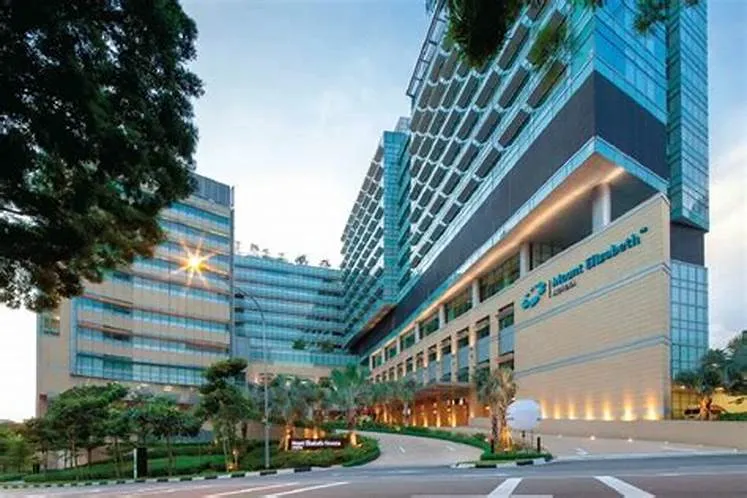Table of Contents
Hyderabad Healthcare Ecosystem: A Comprehensive Analysis
Hyderabad has emerged as a healthcare powerhouse in India, blending centuries-old medical traditions with cutting-edge technology and infrastructure. The city's transformation into a medical hub reflects broader changes in India's healthcare landscape while showcasing unique regional developments that have positioned Hyderabad as a destination for advanced medical care and health education.
Major Healthcare Institutions
Hyderabad's healthcare landscape features an impressive array of public and private institutions that serve the local population, the surrounding states, and increasingly, international patients.
Public Sector Institutions
Osmania General Hospital: Established in 1925 during the Nizam era, this 1,100-bed historic hospital remains one of Hyderabad's most significant public healthcare facilities. It serves approximately 1,800 outpatients daily and functions as the teaching hospital for Osmania Medical College.
Gandhi Hospital: A 1,200-bed tertiary care center and major referral hospital for the state of Telangana, handling complex cases from across the region, particularly in trauma care and infectious diseases.
Nizam's Institute of Medical Sciences (NIMS): A 930-bed autonomous university hospital offering specialized care in neurology, cardiology, nephrology, gastroenterology, and oncology. NIMS handles approximately 2,500 outpatients daily.
MNJ Institute of Oncology & Regional Cancer Centre: The state's premier government cancer treatment facility, treating approximately 10,000 new cancer patients annually.
ESIC Super Specialty Hospital: A 300-bed hospital providing care for employees covered under the Employees' State Insurance scheme.
Private Healthcare Leaders
Apollo Hospitals, Jubilee Hills: The flagship facility of the Apollo group in Hyderabad, this 650-bed multi-specialty hospital was established in 1988 and serves as a quaternary care center with advanced facilities in cardiology, neurology, orthopedics, and transplantation.
KIMS Hospitals (Krishna Institute of Medical Sciences): A 1,000-bed facility known for cardiac care, neurosciences, and organ transplantation.
Care Hospitals: Founded by cardiac specialists, Care has expanded to multiple units across Hyderabad with a combined capacity of over 1,200 beds.
Yashoda Hospitals: Operating three major facilities in Secunderabad, Malakpet, and Somajiguda with a combined capacity of approximately 2,200 beds, specializing in cardiac care, neurosciences, and oncology.
Continental Hospitals: A 750-bed JCI-accredited facility providing advanced quaternary care.
Sunshine Hospitals: A 600-bed specialty center focusing on orthopedics and trauma care.
Basavatarakam Indo-American Cancer Hospital: A 300-bed specialty cancer hospital established by actor Nandamuri Balakrishna in memory of his mother.
AIG Hospitals (Asian Institute of Gastroenterology): A 800-bed super-specialty hospital known for gastroenterology and digestive sciences.
Medicover Hospitals: A European healthcare group with multiple facilities across Hyderabad.
Maxcure Hospitals: A growing chain with multiple facilities specializing in multi-organ transplantation.
Specialized Medical Centers
Cancer Care
Hyderabad hosts several distinguished oncology institutions:
MNJ Institute of Oncology & Regional Cancer Centre: The state's premier government cancer center providing comprehensive and affordable care.
Basavatarakam Indo-American Cancer Hospital: Offering advanced radiation therapy, surgical oncology, and medical oncology services.
Apollo Cancer Institutes: Providing comprehensive cancer care with sophisticated radiation technology including TrueBeam STx and TomoTherapy.
American Oncology Institute: Part of a specialized cancer hospital chain focusing on protocol-based treatment.
Omega Hospitals: A specialized cancer center equipped with advanced radiation therapy options.
Cardiac Care
Hyderabad pioneered cardiac care in central India through institutions like:
CARE Hospitals: Founded by cardiologists, it performs approximately 5,000 cardiac procedures annually.
Apollo Heart Institutes: Conducting about 4,000 cardiac surgeries yearly with outcomes matching international standards.
KIMS Heart Centre: Known for complex cardiac interventions and heart transplantation.
Yashoda Hospitals: Operating advanced cardiac catheterization laboratories and heart failure clinics.
Neurosciences
Nizam's Institute of Medical Sciences (NIMS): Housing one of South India's premier neuroscience departments.
Continental Hospitals: Offering comprehensive neurosurgical services including stereotactic radiosurgery.
Yashoda Hospitals: Known for stroke management and minimally invasive neurosurgery.
KIMS Hospitals: Pioneering in interventional neurology and complex neurosurgical procedures.
Gastroenterology and Hepatology
Asian Institute of Gastroenterology (AIG): One of Asia's largest gastroenterology centers, performing approximately 40,000 endoscopic procedures annually.
Global Hospitals: Known for liver transplantation and hepatobiliary surgery.
Gleneagles Global Hospitals: A center of excellence for liver diseases and transplantation.
Rural Healthcare Connection
While Hyderabad hosts advanced tertiary care facilities, healthcare delivery extends to rural Telangana through:
District Hospitals: Secondary care facilities in district headquarters like Nizamabad, Warangal, and Karimnagar.
Community Health Centers: Serving populations of approximately 100,000 each.
Primary Health Centers and Sub-Centers: Forming the backbone of rural healthcare with approximately 800 PHCs across Telangana.
Mobile Health Units: Operated by institutions like Apollo Reach and Narayana Health to provide periodic specialized care to rural communities.
Telemedicine Networks: Connecting rural healthcare providers with Hyderabad specialists for consultations and follow-up care.
Surgical Excellence
Hyderabad has established itself as a center for advanced surgical procedures:
Organ Transplantation: Institutions like Apollo, KIMS, and Global Hospitals perform kidney, liver, heart, and other organ transplants. Telangana's Jeevandan program facilitates deceased donor organ donation.
Robotic Surgery: Available at Apollo Hospitals, AIG Hospitals, and Yashoda Hospitals for precision procedures across specialties including urology, gynecology, and general surgery.
Minimally Invasive Surgery: Widely practiced with Hyderabad surgeons often pioneering new techniques, particularly in bariatric surgery, gynecology, and thoracic surgery.
Plastic and Reconstructive Surgery
Hyderabad hosts renowned centers for plastic surgery:
Virinchi Hospitals: Known for advanced cosmetic and reconstructive procedures.
Apollo Hospitals Department of Plastic Surgery: Offering comprehensive aesthetic and reconstructive services.
Gandhi Hospital Department of Plastic Surgery: One of the oldest training centers in the region.
Maxcure Hospitals: Specializing in cosmetic procedures and post-traumatic reconstruction.
Diagnostic Infrastructure
The city's diagnostic landscape combines hospital-integrated facilities with standalone centers:
Vijaya Diagnostic Centre: One of South India's largest diagnostics chains headquartered in Hyderabad with over 75 centers.
Medall Healthcare: Operating numerous collection centers across the city.
Apollo Diagnostics: Providing advanced laboratory and imaging services with approximately 30 centers in Hyderabad.
Thyrocare: Operating through a network of collection centers for cost-effective testing.
Advanced imaging technologies including MRI, CT, PET-CT, SPECT, and interventional radiology are available at major hospitals and specialized imaging centers throughout the city. Hyderabad also hosts several molecular diagnostic laboratories supporting precision medicine approaches.
Pharmaceutical Landscape
Hyderabad is known as India's pharmaceutical capital:
Genome Valley: A 600-acre biotech and pharmaceutical cluster housing over 200 companies including Novartis, GlaxoSmithKline, and Mylan.
Dr. Reddy's Laboratories: A global pharmaceutical company headquartered in Hyderabad.
Aurobindo Pharma: One of India's largest pharmaceutical manufacturers.
Biological E. Limited: A major vaccine manufacturer.
Bharat Biotech: Developer of Covaxin, India's indigenous COVID-19 vaccine.
The pharmaceutical ecosystem supports the healthcare infrastructure with research, manufacturing, and distribution networks, making medicines more accessible across the region.
Healthcare Workforce
Physicians
Hyderabad has approximately 16,000 registered doctors serving its population of around 10 million, translating to a physician density of roughly 1:625—better than the national average of 1:1,456 but still below WHO recommendations of 1:1,000. Doctor distribution favors urban centers with significant disparities in rural areas.
Nursing Professionals
The city's healthcare system employs approximately 25,000 nursing professionals trained at numerous nursing colleges. Hyderabad produces approximately 2,000 nursing graduates annually, with a growing number finding international placements, particularly in English-speaking countries and the Middle East.
Allied Health Professionals
Hyderabad hosts numerous training programs for physiotherapists, laboratory technicians, radiographers, and other allied health professionals. The Nizam's Institute of Medical Sciences and other institutions offer specialized training programs, producing approximately 1,500 allied health professionals annually.
Medical Education
Hyderabad's reputation as a medical education hub continues to grow with several prestigious institutions:
Osmania Medical College: Established in 1846, one of India's oldest medical schools, producing approximately 250 MBBS graduates annually.
Gandhi Medical College: Training approximately 200 MBBS students yearly.
Nizam's Institute of Medical Sciences: Offering specialized postgraduate medical education in 40+ disciplines.
Kaloji Narayana Rao University of Health Sciences (KNRUHS): The state health university overseeing medical education across Telangana.
All India Institute of Medical Sciences (AIIMS) Bibinagar: A new addition to Hyderabad's medical education landscape, part of the prestigious AIIMS network.
The Hyderabad metropolitan region houses approximately:
- 12 medical colleges (public and private)
- 15 dental colleges
- 30+ nursing schools and colleges
- Numerous allied health science institutions
Medical education in Hyderabad produces approximately:
- 1,400 MBBS graduates annually
- 800 dental graduates
- 2,000 nursing graduates
Dental Excellence
Hyderabad has established itself as a center for dental education and care:
Government Dental College and Hospital, Hyderabad: The state's premier public dental institution.
Army College of Dental Sciences: Established by the Army Welfare Education Society.
Panineeya Mahavidyalaya Institute of Dental Sciences: Known for comprehensive dental education.
Sri Sai College of Dental Surgery: Offering specialized treatment and education.
The city has approximately 3,000 practicing dentists, with concentrations in neighborhoods like Banjara Hills, Jubilee Hills, and Secunderabad.
International Medical Tourism
Hyderabad has emerged as a significant destination for international patients, particularly from:
- Middle Eastern countries
- African nations (especially Sudan, Nigeria, and Ethiopia)
- Bangladesh
- ASEAN countries
- Commonwealth of Independent States (CIS)
Approximately 80,000 international patients visit Hyderabad annually, generating revenue of approximately $100 million. The city's advantages include:
- Treatment costs at one-tenth of Western countries
- English-speaking medical professionals
- Internationally accredited hospitals (JCI, NABH)
- Direct international flights to many source countries
- Specialized packages combining treatment with recuperation
Hospitals like Apollo, Continental, and KIMS maintain dedicated international patient departments with services including translation, visa assistance, and accommodation arrangements.
Preventive Healthcare Initiatives
Preventive healthcare in Hyderabad operates at multiple levels:
Greater Hyderabad Municipal Corporation (GHMC) Health Department: Oversees disease surveillance, vector control, and preventive health programs including mosquito control to prevent dengue, malaria, and chikungunya.
Telangana Health Systems Strengthening Project: Focusing on non-communicable disease prevention and early detection.
Corporate preventive health packages: Offered by private hospitals with executive health screening programs tailored to the city's significant IT workforce.
Community outreach programs: Regular health camps organized by major hospitals and NGOs.
School health initiatives: Regular health check-ups in government and private schools coordinated by the Department of School Education.
Government Support and Policies
Healthcare in Hyderabad benefits from several government initiatives:
Arogyasri Health Insurance Scheme: Providing coverage for approximately 85 lakh families in Telangana for treatments up to ₹5 lakhs per year.
Telangana Diagnostics: A free diagnostic service initiative providing essential tests at government facilities.
KCR Kits: Supporting maternal and infant healthcare by providing financial assistance and essential supplies for new mothers.
Basti Dawakhanas: Neighborhood clinics providing primary healthcare services in urban areas, inspired by Delhi's Mohalla Clinic model.
T-Hub Health Tech Accelerator: Supporting healthcare startups and innovation.
Challenges and Opportunities
Despite its advanced healthcare infrastructure, Hyderabad faces significant challenges:
Access disparities: World-class care remains out of reach for economically disadvantaged populations.
Infrastructure strain: Public hospitals operate significantly above designed capacity.
Healthcare workforce distribution: Concentration of specialists in urban centers with shortages in peripheral areas.
Rising costs: Private healthcare inflation outpacing general inflation.
Disease burden transition: Managing both infectious diseases and increasing non-communicable conditions.
Opportunities for Hyderabad's healthcare sector include:
Digital health integration: Leveraging the city's IT ecosystem for healthcare technology development.
Research and clinical trials: Building on the pharmaceutical infrastructure to expand medical research.
Medical device manufacturing: Developing indigenous medical technology to reduce import dependence.
Preventive healthcare models: Creating scalable preventive care programs that leverage community health workers.
Health-tech innovation: Utilizing Hyderabad's startup ecosystem to address healthcare challenges.
Future Trajectory
Hyderabad's healthcare landscape is evolving with several emerging trends:
Integration of AI and data analytics: Utilizing the city's IT strength for healthcare applications.
Precision medicine approaches: Building on the local biotechnology ecosystem for personalized healthcare.
Expansion of telemedicine: Connecting urban specialists with rural patients across Telangana and neighboring states.
Developing healthcare clusters: Creating specialized medical districts like the upcoming Medicity project.
Focus on medical value travel: Enhancing infrastructure for international patients.
Public-private partnerships: Expanding successful models like the Arogyasri network to improve healthcare access.
Hyderabad's healthcare system exemplifies the progress and challenges of Indian healthcare in the 21st century. While its leading institutions compete with global standards in clinical excellence and technological adoption, the city continues to address fundamental questions of access, affordability, and equitable distribution. The fusion of Hyderabad's pharmaceutical prowess, information technology capabilities, and medical expertise positions it uniquely to contribute to healthcare innovation not only for India but potentially for global healthcare solutions.







